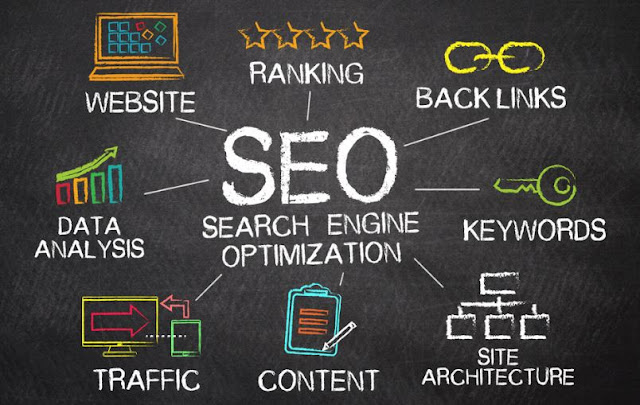
Digital marketing encompasses many channels of advertising and branding including social media, email, PPC, SEO, mobile apps, content, or other methods. SEO is the way to go if you want to drive traffic to your website, acquire good leads, and boost your sales. With all the competition to capture consumers' attention, more and more digital marketers are scrambling to adapt various measures to please their clients, realizing that it boils down to one crucial thing, good old SEO.
What Is Search Engine Optimization (SEO)?
SEO is the optimization of a website or online content to increase its ranking and visibility in SERPs or search engine results pages. It's typically done by incorporating relevant keywords, meta tags, and backlinks into the website or content and ensuring that the website is easy to navigate and loads quickly. SEO targets to increase the website’s organic traffic by making it to appear at the top of search engine results for relevant queries.
Incorporating SEO into your digital marketing plan can increase your website's ranking, drive more traffic, and boost conversions and revenue. Whether you are a business owner, marketer, or digital professional, understanding the importance of SEO and how to implement it effectively is essential for success in today's digital landscape.
If you are interested in embracing SEO, Oregon Web Solutions Portland SEO company can provide the best help you need. If you want to excel in SEO, it is best to go with a pro. Trying to take on SEO yourself with little time or experience could produce minimal results at best or a disaster at worst. Additionally, this article will discuss the critical elements of SEO and how you can use them to boost your digital marketing strategy, so read on further in this blog post.
Conduct Keyword Research
Keyword researching is a fundamental aspect of SEO. It is the process of identifying the keywords and phrases that your target audience is utilizing to look for brands and services like yours. By understanding the keywords and phrases most relevant to your business, you can optimize your website's content and meta tags to involve them, which will help search engines understand your site and rank it accordingly.
To conduct keyword research, you can use various tools to help identify the keywords most relevant to your business and show you the search volume, competition level, and CPC (cost per click) of each keyword. Once you have a list of keywords, you can prioritize them to determine which to use for website optimization.
Apply Link Building
Link building is a critical aspect of SEO and refers to acquiring links from other websites to your own. Search engines view links as a vote of confidence in your website, and the more links you have pointing to your site, the higher your site will rank in SERP.
There are several ways to acquire links to your website. One of the most effective ways is to create high-quality, valuable content that other websites will want to link to. It can include blog posts, infographics, videos, and content that provide value to your target audience. Another way to acquire links is to reach out to other website owners and request them.
It is essential to remember that link building should be natural and ethical, avoiding manipulative or spammy techniques like buying links and participating in link farms or schemes. Search engines will penalize sites that engage in these backlinks building practices through multiple methods.
Achieve On-Page Optimization
On-page optimization is a critical aspect of SEO and involves optimizing various elements of a web page to improve its relevance and credibility to search engines. It is essential to ensure your website is mobile-friendly and has a fast-loading speed, as both factors can affect your search engine rankings. It can be achieved using responsive design, compressing images, and minifying code. Minimize or eliminate excess ads and ensure they are not intrusive to the user experience.
You also need to have the proper titles, title tags, meta description, meta tags, internal links, external links, word count, and keyword density. Without maximizing on-page SEO, your results will not be ideal.
Monitoring And Analyzing
Monitoring and analyzing your Search Engine Optimization (SEO) efforts is an essential step in understanding the effectiveness of your strategy and identifying areas for improvement. By regularly tracking and analyzing your website's performance in SERPs and user behavior, you can make data-driven decisions to optimize and improve your SEO.
Search engine analytics is one of the essential tools for monitoring and analyzing this. It allows you to track your website's traffic, including the number of visitors, where they are coming from, and how they interact with your site. This information can help you understand which pages are performing well and which need improvement. It can also track conversion rates and revenue, which can help you understand the ROI of your SEO efforts.
SEO Like A Pro
SEO is a vital element of any digital marketing strategy. By understanding its importance, businesses, marketers, and digital professionals can stay ahead of their competition and succeed in the cutthroat digital landscape.
Remember, SEO is a continuous process; it takes time to see the results. But with the right approach, it can be a powerful tool to help your business thrive online. Keep in mind that SEO is not only about ranking higher in search results; it also helps build credibility and trust with your target audience. Thus, investing in SEO is an investment in your business's future.

